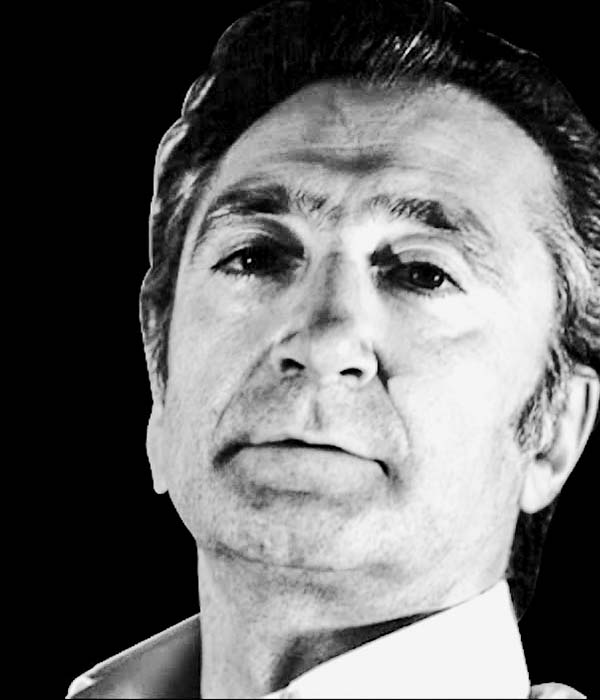
director, writer, actor
Farrukh Ghaffārī
In Brief
(Farrukh Ghaffārī 25 February 1921 – 17 December 2006) was an Iranian film director, actor, critic and author, and, along with Ibrāhīm Gulistān and Farīdūn Rahnamā, played an important role in the establishment of Iranian intellectual and unconventional cinema in the early 1940s (notably founding Iran’s New Wave film movement). Ghaffarī injected new blood into the lifeless body of Iranian cinema by making films about south of the city Junūb-i shahr (South of The City) and Shab-i qūzī (Night of the Hunchback), akin to films such as Khisht va āyinah (The Brick and Mirror) by Ibrāhīm Gulistān and Siyāvash in Persepolis by Farīdūn Rahnamā, furthering the growth and evolution of Iranian art cinema.
Ghaffārī graduated in French literature from the University of Grenoble in France (1945) and started his artistic career by acting in theatre in France. He got known Henri Langlois, the founder of the Paris cinémathéque, through writing articles for Dauphiné newspaper, Variétés Journal and Positif magazine. Years later, Ghaffārī himself founded the National Iranian Film Archive in Tehran.
Ghaffārī was a forerunner of criticism and historiography in Iranian cinema whose artistic and film credentials include a history of filmmaking and cultural management in radio and television in the years before the Iranian Revolution. Although a pioneer of a highly different and modern cinema in Iran leading up to the revolution, Ghaffārī’s name and works have been largely—and unfortunately—neglected.
Ghaffārī’s 1958 film, Junūb-i shahr (South of the City), is notable as both one of the first non-realist films in Iranian cinema, but also for being banned by the government of the Shah. Due to its depictions of poverty among the working classes, the government feared that the film could be used to reveal the imperrilled reality of Iran’s struggling poor. However, in 1963, Riqābat dar shahr (Urban Rivalry), a much-edited version of the original, was released. His next film, Shab-i qūzī (Night of the Hunchback), which he produced and directed in 1964, was a black comedy based on One Thousand and One Nights. Originally set during the time of Caliph Harun al-Rashid, the film ultimately was altered to depict the contemporary era due to threats of censorship. Ghaffārī himself starred in the film and it was also the acting debut of Muḥammad ʿAlī Kishāvarz. During this time, Ghaffārī worked for National Iranian Television, and, in 1975, released his last film Zanbūrak (The Running Canon), starring Parvīz Sayyid and Shahnāz Tihrānī).
Due to the profound upheaval of the Iranian Revolution, Ghaffārī left Iran for Paris in 1979 where he became a film critic, writing for the magazine Positif, living the remainder of his life there in exile until his death in 2006.
Cite this article

Tehran, Iran
Paris, France
